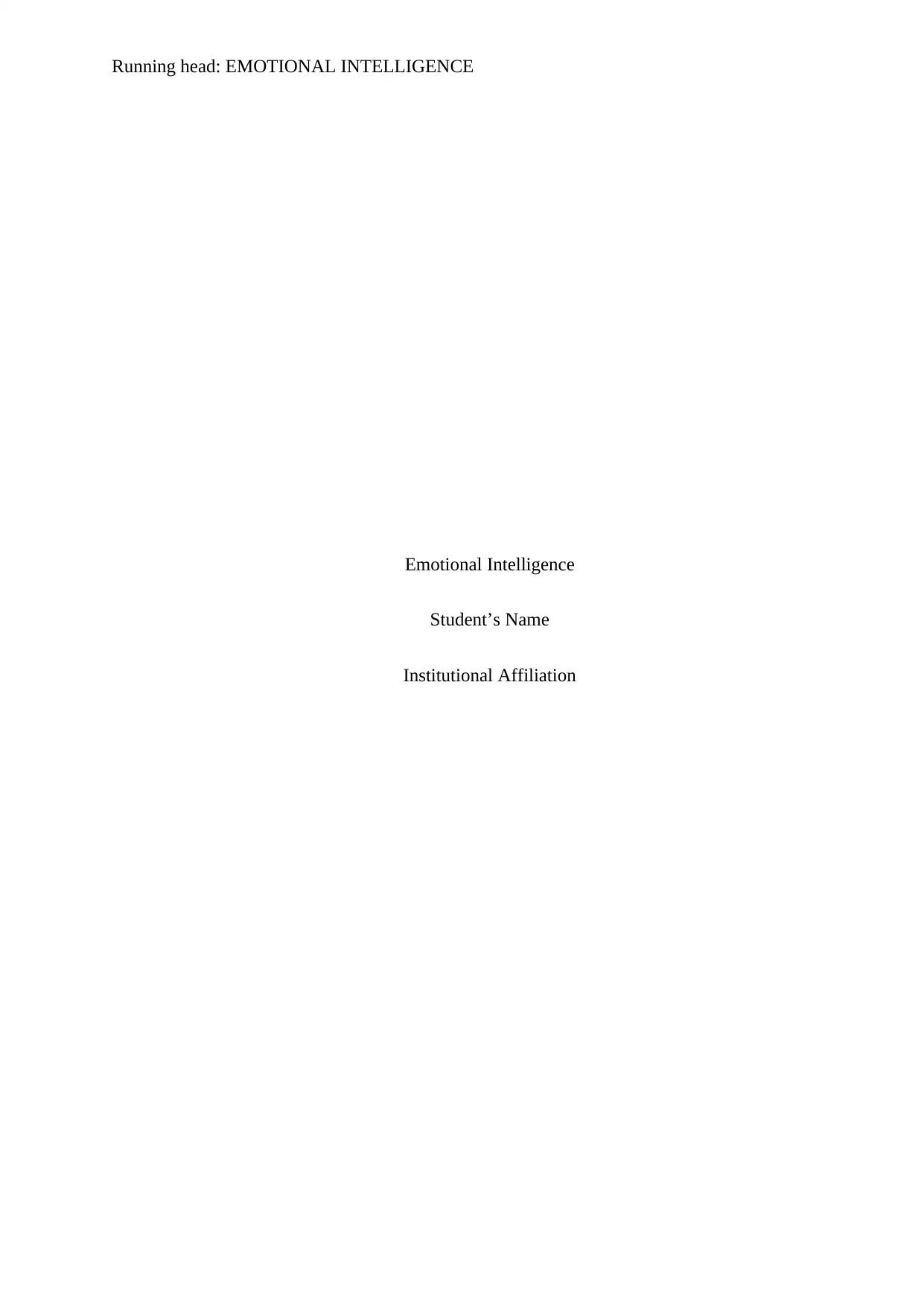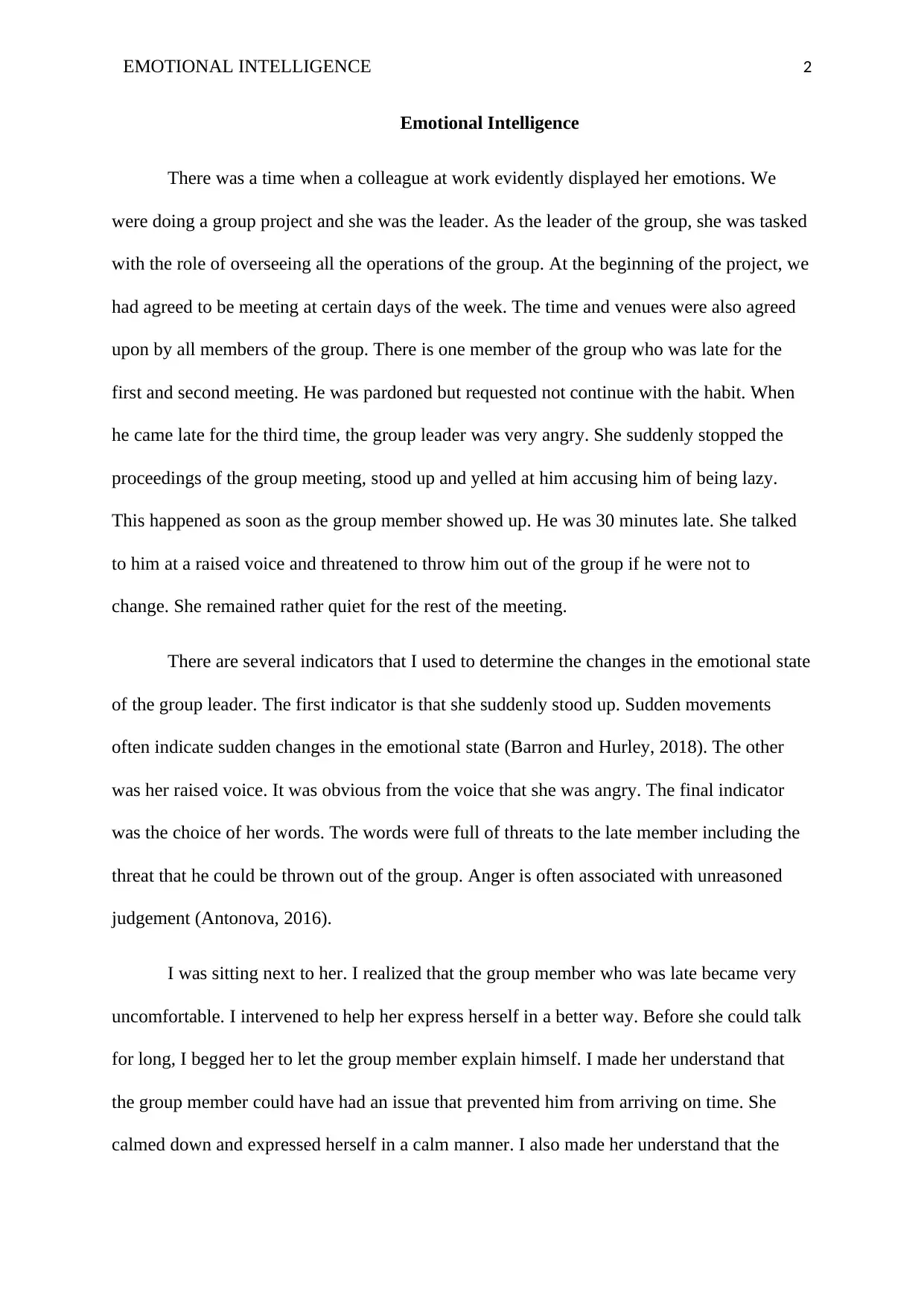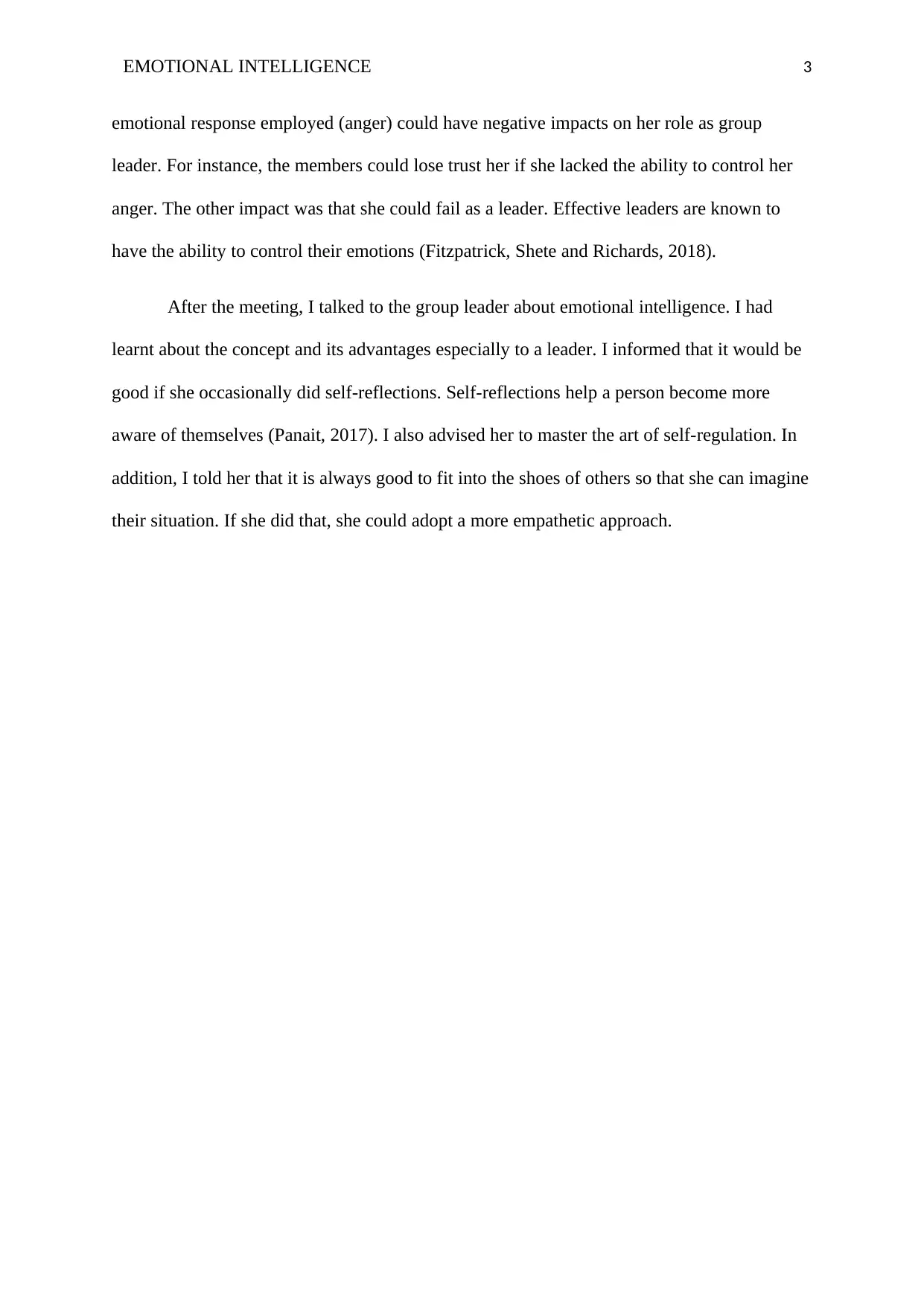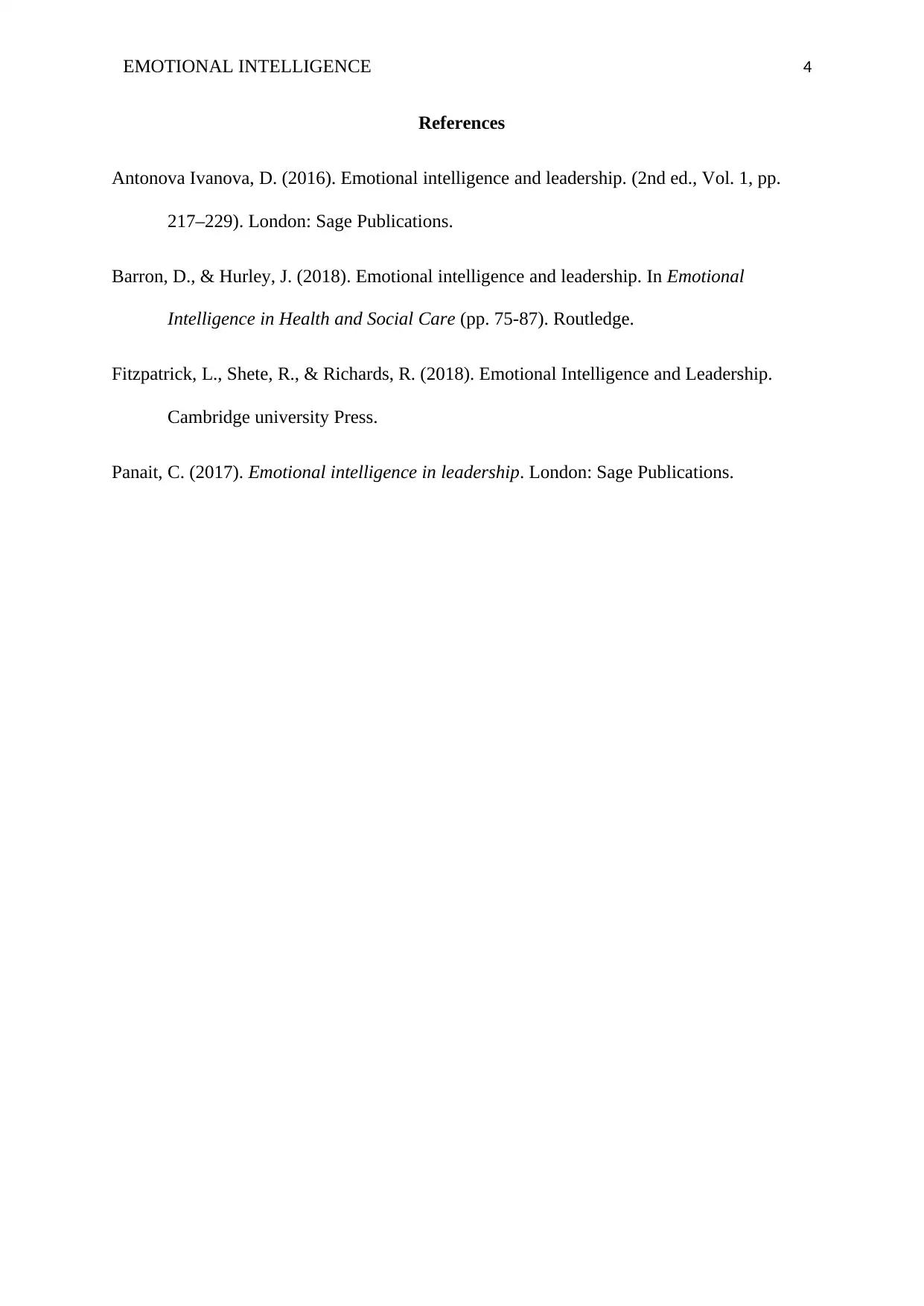The Role of Emotional Intelligence in Effective Leadership Skills
VerifiedAdded on 2023/05/31
|4
|710
|267
Essay
AI Summary
This essay examines the application of emotional intelligence in a leadership scenario, where a group leader's emotional outburst during a project meeting is analyzed. The essay identifies indicators of emotional change, such as sudden movements, raised voice, and threatening language, and discusses the negative impacts of uncontrolled anger on leadership effectiveness. The intervention to help the leader express herself calmly and the subsequent advice on self-reflection, self-regulation, and empathy are detailed. The essay concludes by highlighting the importance of emotional intelligence for leaders to maintain trust and effectively guide their teams, emphasizing the value of self-awareness and understanding others' perspectives.
1 out of 4










![[object Object]](/_next/static/media/star-bottom.7253800d.svg)